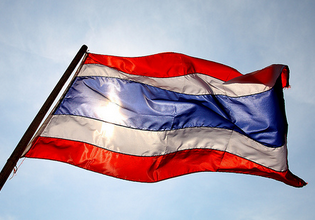
Mar 9, 2017 | News
Amnesty International and the ICJ regret the decision of Thailand’s National Legislative Assembly (NLA) to further delay the passage of essential legislation criminalizing torture and enforced disappearances.
Our organizations call on the Thai government to cease its stalling measures and instead prioritize the amendment of the Draft Prevention and Suppression of Torture and Enforced Disappearance Act (Draft Act) in order to bring it into line with international law. The government should then ensure its passage into law without undue delay.
On 28 February, the Office of the High Commissioner for Human Rights announced that it had been informed that the NLA would not enact the Draft Act. The following day, an NLA official speaking to BBC Thai confirmed that the draft would be “returned [to the Thai Cabinet] for more consultations… with Interior officials, police authorities, the national security sector, military authorities and prosecutors.”
The Draft Act is the result of years of effort by government authorities, including by Ministry of Justice officials who consulted with our organizations and took account of many of our recommendations in elaborating it. The draft was approved by Thailand’s Cabinet in May 2016.
The recent decision by the NLA has indefinitely delayed the enactment of this important piece of legislation, which would represent a significant step towards preventing torture and enforced disappearances in Thailand.
The slow-tracking of this law in the face of all the commitments Thailand has made over the years right up to last year is extremely disappointing, especially for the victims of torture and enforced disappearances who have struggled to obtain justice in the absence of a clear legal framework.
The most recent version of the Draft Act addresses many existing gaps in Thailand’s current legal framework and could support Thailand’s compliance with its obligations under international human rights law. However, further amendments are needed to address significant shortcomings in the Draft Act.
In particular, the Draft Act omits key elements from the definitions of torture and enforced disappearances, does not criminalize acts of cruel, inhuman or degrading treatment, and fails to define enforced disappearance as a continuing crime. Additionally, the Draft Act does not extend criminal liability beyond the direct commission of the act and fails to unequivocally bar the use as evidence in court proceedings of statements obtained by torture.
Thailand should make it a top priority to address these and other concerns and to enact the law as soon as possible. The urgent need to amend and enact the Draft Act is underscored by recent reports alleging the use of torture and other ill-treatment by state security forces and the continued failure to hold accountable perpetrators of torture, other ill-treatment and enforced disappearances.
Our organizations remain committed to providing any necessary assistance to the Thai government in amending the Draft Act or otherwise acting to prevent torture and enforced disappearances in Thailand.
Background
Thailand is a state party to the International Covenant on Civil and Political Rights (ICCPR), the Convention against Torture and other Cruel, Inhuman or Degrading Treatment or Punishment (CAT), and has signed, but not ratified, the International Convention for the Protection of All Persons from Enforced Disappearance (ICPPED).
The expert UN bodies overseeing the implementation of these treaties have consistently called upon states parties to criminalise torture and enforced disappearance as specific crimes.
On 13 and 14 March 2017, the UN Human Rights Committee will review Thailand’s compliance with the ICCPR.
In Thailand’s 15 November 2016 reply to the Committee’s List of Issues,[1] it noted that it was in the process of passing the Draft Law which would “provide clear definition and set up specific offence on torture to be in line with the terms set forth under CAT” and “serve as an implementing legislation for ICPPED.”
It also noted that the Draft Act “aims to strengthen the prevention, suppression, and prosecution mechanism and to ensure remedy for victims as well as address the problem of misuse, and abuses of power by government authorities with regard to torture and enforced disappearances.”
It concluded by noting that “[o]n 24 May 2016, the Cabinet approved the draft Act in principle. The draft has been reviewed by the Council of State and is currently waiting to be submitted to the legislative branch for consideration.”
[1] Human Rights Committee, “Replies of Thailand to the List of Issues,” U.N. Doc. CCPR/C/THA/Q/2/Add.1, para 51.
Thailand-Joint Statement-Torture Legislation-News-2017-ENG (Press release in PDF)
Contact
Kingsley Abbott, Senior International Legal Adviser for Southeast Asia, Tel: +66 94 470 1345, E-mail: Kingsley.abbott(a)icj.org
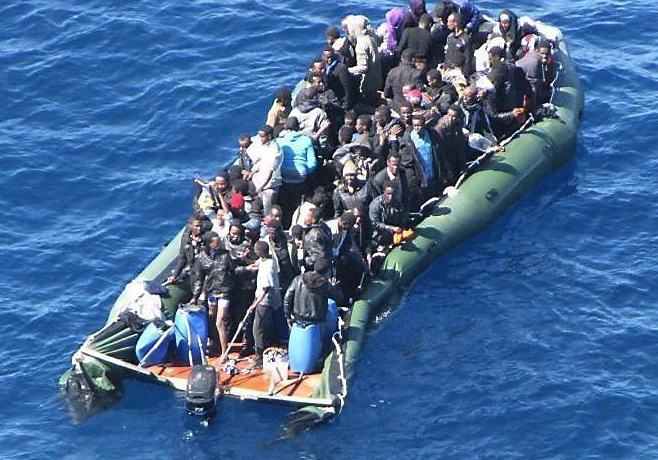
Mar 8, 2017 | Events, News
During March to April 2017 the ICJ conducted consultations on draft Principles and Guidelines on the role of judges and lawyers in relation to large movements of refugees and migrants.
The initial consultation meeting took place in Geneva on Thursday, 9 March 2017, 15:00 – 16:30 at the Palais des Nations, Room XXI.
At this side event the ICJ presented and received feedback from States and civil society on draft ICJ Principles on the Role of Judges and Lawyers in relation to Large Movements of Refugees and Migrants.
The Principles were developed by the ICJ on the basis of consultations with senior judges, lawyers, and legal scholars working in the field of international refugee and migration law. The ICJ published the final version of the Principles, together with commentary, in May 2017.
The Principles seek to help judges and lawyers, as well as legislators and other government officials, better secure human rights and the rule of law in the context of large movements of refugees and migrants. They are intended to complement existing relevant legal and other international instruments, as well as the Principles and practical guidance on the protection of the human rights of migrants in vulnerable situations within large and/or mixed movements being developed by the OHCHR.
The final version of the Principles is available here.
More information about the earlier consultations and overall process of development of the Principles is available here.
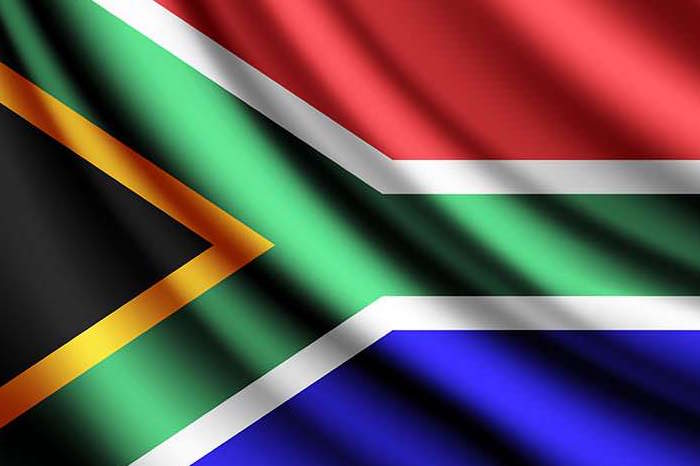
Mar 8, 2017 | Advocacy, Analysis briefs, News
Today the ICJ submitted a brief opposing the current efforts by South Africa to withdraw from the Rome Statute of the International Court.
The brief was submitted in collaboration with a number of South Africa’s leading jurists to the South African Parliamentary Portfolio Committee on Justice and Correctional Services.
The brief was signed by Retired South African Constitutional Court Justices Laurie Ackermann; Richard Goldstone; Johann Kriegler; Yvonne Mokgoro, Kate O’Regan, Zak Yacoob. It was co-signed by Navi Pillay, former United Nations High Commissioner for Human Rights, former judge of the ICC and former President of the International Criminal Tribunal for Rwanda (ICTR). Wilder Tayler, Secretary General, signed on behalf of the ICJ
The ICJ and leading South Africa jurists call on South African Parliamentarians not to pass The Implementation of the Rome Statute of the International Criminal Court Act Repeal Bill [B23-2016].
They also urge South Africa to remain a party to the Rome Statute of the ICC and engage, where appropriate with other African States, in actively pursuing appropriate reforms within the Assembly of State Parties, with a view to making the ICC more effective in advancing the objectives of international justice.
“South Africa should actively encourage other African states to put in place legislation required to empower domestic courts with the ability to try genocide, war crimes and crimes against humanity. South Africa should continue to work constructively with civil society on the advancement of international criminal justice,” the report stated.
“Pursuit of justice and pursuit of peace are complementary and mutually reinforcing objectives that South Africa will best achieve by remaining party to the Rome Statute of the ICC. Its not an either or situation. Protecting heads of States from justice whatever they do compromises peace too much,” said Retired Justice Zak Yacoob.
The report also underscored the danger of an impunity gap if South Africa pulls out of the ICC, as there would be no other effective regional or international forum in which to prosecute the most serious crimes under international law.
“Given the devastating impact of impunity on the rule of law, on development efforts and on society at large, it is vital that South Africa projects itself as a leader in anti-impunity efforts in the region. Pulling out of the Rome Statute of the ICC would crush the best chances that Africa has today to tackle the pervasive impunity that affects the region and would be a most unfortunate move for South Africa and the wider international community,” said Wilder Tayler, Secretary General of the ICJ.
Background
South Africa is one of the earliest parties to the Rome Statute of the ICC. It signed the Rome Statute on the day it was adopted, 17 July 1998, and ratified it on 27 November, 2000. Both during the negotiations preceding the Rome Conference that established the Court in 1998, and at the Conference itself, South Africa played a leading role.
However, the events of June 2015 surrounding the arrival of President Omar al Bashir of Sudan in South Africa appears to have engendered a shift in South Africa’s posture, leading many observers to call into question the country’s commitment to international justice.
The failure by South African authorities to arrest and surrender President al Bashir to the ICC, although he had been indicted by the ICC for war crimes, crimes against humanity and genocide, led to the Southern Africa Litigation Centre (SALC) taking the government to court to compel it to fulfil its obligations both under the Rome Statute and the Implementation of the International Criminal Court Act 27 of 2002 (Implementation Act).
On 19 October 2016, the Minister of International Relations and Co-operation gave notice of South Africa’s intention to withdraw from the Rome Statute.
The Portfolio Committee on Justice and Correctional Services put out a call for submissions to be made to the Parliamentary Portfolio Committee on Justice and Correctional Services on the Implementation of the Rome Statute of the International Criminal Court Act Repeal Bill [B23-2016] to be made by 8th March 2017. The ICJ Brief was filed pursuant to that call.
Contact
Arnold Tsunga, Director of the ICJ Africa Programme, arnold.tsunga@icj.org and +277 164 059 26
RSA-ICC Withdrawal-Advocacy-Analysis Brief-2017 (Analysis brief in PDF)
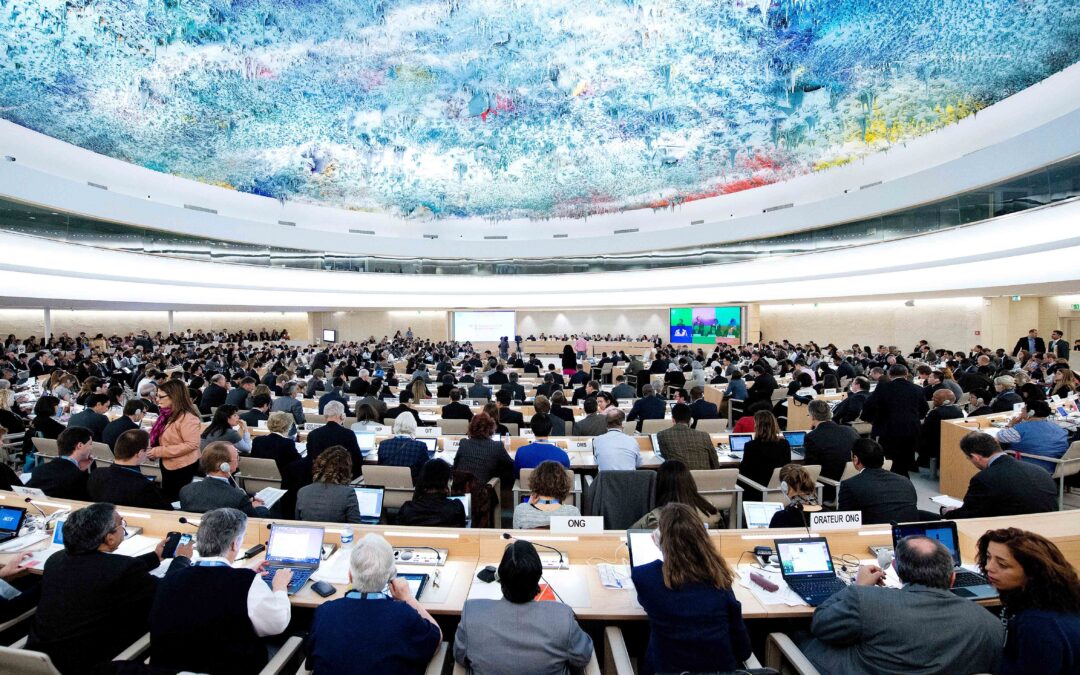
Mar 7, 2017 | Advocacy, Non-legal submissions
Today at the UN Human Rights Council the ICJ expressed concerns about violence and other wrongs against children in times of armed conflict and peacetime.
The ICJ statement was delivered during an interactive dialogue with the Special Representatives of the Secretary General on Violence against Children and for Children and Armed Conflict.
The ICJ thanked the Special Representatives for their annual reports (Violence against Children UN doc.A/HRC/34/45-ENG and Children and Armed Conflict UN doc.A/HRC/34/44-ENG) and then continued as follows:
We welcome the renewed commitment of States, via the Sustainable Development Goals (in particular SDG 5.2 and 5.3 and SDG 16.2 and 16.3), to eliminating violence against children and ensuring access to justice for everyone by 2030.
However, as the Special Representative for Violence against Children’s report noted, we must ensure that protecting children from violence is not simply an ideal but is realized in practice.
The ICJ is concerned about systemic problems where States agree in principle to protect children from violence but disagree on fundamental definitions of ‘children’ and ‘violence’.
We agree with the Special Representative for Children and Armed Conflict’s assessment that States must close any legal lacunae that fail to implement the almost universally accepted definition of ‘child’ as everyone below the age of 18.
We ask that all forms of violence against children be condemned even where some violent practices, such as child marriage or female genital mutilation, were once considered culturally acceptable.
We welcome efforts undertaken to prevent violence against children and protect children in armed conflict to ensure their human rights are protected.
However, rights protections are meaningless without accountability and so we would like to ask which measures should be put in place to eradicate impunity and ensure access to justice for children who have suffered violence and other wrongs in times of armed conflict and otherwise?
The statement can be downloaded in PDF format here: HRC34-OralStatement-violence against children+children armed conflict-Advocacy-2017
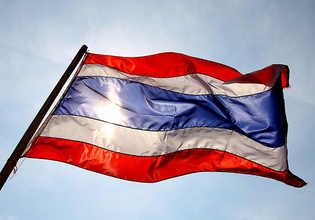
Mar 7, 2017 | News
The ICJ welcomes Thailand’s decision to drop spurious criminal defamation complaints against three prominent human rights defenders who had raised allegations of torture by security forces in Thailand’s restive deep South.
“It’s good news that the Thai military has dropped these unfounded complaints, but these charges should never have been brought. Thailand should now ensure the allegations of torture and ill-treatment are independently and effectively investigated,” said Sam Zarifi, the ICJ’s Asia Director.
“Thailand should also work to repair the considerable damage that was caused to alleged victims of torture and civil society who have been intimidated into silence by the prosecutions,” Zarifi continued.
On 10 February 2016, three Thai organizations, the Cross Cultural Foundation (CrCF), Duay Jai Group (Hearty Support Group), and the Patani Human Rights Organization (HAP), issued a report that documented 54 cases of alleged torture and ill-treatment by the Thai security forces in the deep South since 2004.
In response, the Internal Security Operations Command (ISOC) brought criminal defamation complaints against the three co-editors, Ms. Pornpen Khongkachonkiet (Director of the CrCF), Mr. Somchai Homlaor (Senior legal advisor to CrCF and Hearty Support Group), and Ms. Anchana Heemmina (founder and Director of the Hearty Support Group).
On 26 July 2016, the Thai police charged the three human rights defenders with criminal defamation by means of publication under Article 326 and 328 of the Penal Code, and importing false information to a computer system under Article 14 (1) of the Computer-Related Crime Act B.E. 2550 (2007).
The ICJ has been concerned by the abuse of criminal laws, including the already problematic criminal defamation law, as a means of effectively silencing human rights defenders.
“Thailand should now drop other outstanding criminal complaints against human rights defenders, including the complaint of sedition made against human rights lawyer Sirikan Charoensiri, and ensure that they are protected from retaliation,” Zarifi said. “We look forward to the ISOC following through on its commitment to working with civil society to end torture and ill-treatment and bring any perpetrators to justice.”
Background
On 7 March 2017, the ISOC 4 Forward Command – created to resolve the situation in the deep South – and the three human rights defenders, held a joint press conference.
The ISOC 4 Forward Command announced the ISOC will drop the complaints, citing the need for authorities and NGOs to work together collaboratively to address alleged human rights violations. ISOC 4 Forward Command also announced the establishment of a “joint fact-finding committee” which will be made up of officials and NGOs to look into allegations of human rights violations and to explore preventative measures.
The dropping of the charges occurs against the backdrop of the National Legislative Assembly (NLA) referring a draft law criminalizing torture and enforced disappearance back to the Cabinet, effectively delaying its passage indefinitely, despite Thailand’s repeated assurances on the international stage that it will pass the law in the near future.
On 13 and 14 March 2017, the UN Human Rights Committee will review Thailand’s compliance with the International Covenant on Civil and Political Rights (ICCPR), to which it is a State Party.
In a joint submission to the Committee, the ICJ and Thai Lawyers for Human Rights (TLHR) called for an end to the legal harassment of human rights defenders and for all allegations of torture, ill-treatment and enforced disappearance to be independently, impartially, and effectively investigated.
Further reading
https://www.icj.org/thailand-stop-use-of-defamation-charges-against-human-rights-defenders-seeking-accountability-for-torture/
https://www.icj.org/thailand-immediately-withdraw-criminal-complaints-against-human-rights-defenders/
Contact
Kingsley Abbott, Senior International Legal Adviser for Southeast Asia, ICJ, email: kingsley.abbott(a)icj.org or mobile: +66 94 470 1345
Thailand-HRD dropped charges-news-2017-THA (Statement in Thai, PDF)









